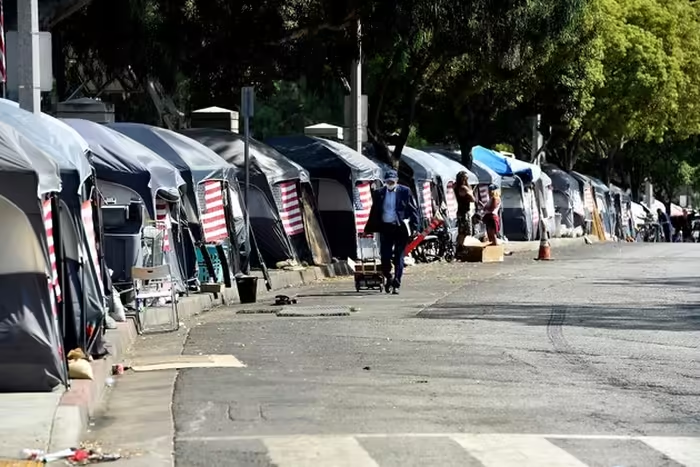By Stephen Zogopoulos, USNN World News
In cities across the world, homelessness and addiction are growing crises, tearing at the fabric of society. While many charities and nonprofits work tirelessly to alleviate these problems, a darker side of this humanitarian effort often goes unnoticed. Some organizations and corporations are exploiting these vulnerable populations for financial gain, with government funding sometimes unwittingly supporting these exploitative practices.
The Business of Misery
Organizations operating in the homelessness and addiction sectors are often perceived as noble, dedicated to serving those in dire need. However, a closer examination reveals a troubling trend: many of these entities prioritize profit over genuine care. The monetization of misery can be seen in various forms, from substandard housing to questionable treatment programs.
Homeless Shelters and Substandard Housing
Homeless shelters are meant to provide a safe haven for those without a roof over their heads. Yet, in many cases, they become lucrative businesses. Some shelters operate in squalid conditions, cramming as many individuals as possible into unsafe, overcrowded spaces. These establishments often receive substantial government funding, allocated based on the number of beds filled, creating a perverse incentive to maximize occupancy with minimal regard for living conditions.
Investigative reports have revealed shelters where residents are exposed to violence, unsanitary conditions, and insufficient food. The financial records of some organizations show a significant portion of their budget allocated to administrative salaries and operational overhead, rather than direct support for the homeless individuals they claim to serve.
Drug Treatment Programs: A Revolving Door
Drug addiction treatment programs are another lucrative sector. Many facilities, especially those operating under for-profit models, engage in what critics call “patient brokering.” This practice involves recruiting individuals with substance abuse issues, often through deceptive means, and cycling them through treatment centers repeatedly. Each admission brings in thousands of dollars from insurance companies or government programs.
Patients are often subjected to subpar care, with little focus on long-term recovery. The goal is not to rehabilitate but to keep the beds filled and the revenue flowing. Government-funded programs, such as Medicaid, are frequently tapped to cover these costs, unwittingly perpetuating the cycle of addiction rather than breaking it.
The Role of Sober Living Homes
Sober living homes, intended as transitional housing for individuals recovering from addiction, have also become profit centers. These homes charge residents high rents while providing minimal support services. In some cases, operators collude with outpatient treatment programs to keep residents in a perpetual state of dependency, ensuring a continuous flow of income.
Government Funding and Lack of Oversight
Government funding is a double-edged sword in the fight against homelessness and addiction. While essential for providing necessary services, these funds are often distributed with insufficient oversight. Grants and contracts are awarded based on the perceived capacity to serve, measured in numbers rather than outcomes.
This lack of stringent oversight allows unscrupulous organizations to exploit the system. Funds intended for direct aid are siphoned off to cover inflated administrative costs, executive salaries, and even marketing expenses. In some instances, government audits have uncovered fraudulent billing practices, where organizations charge for services never rendered.
Case Study: The Scandal of Hope Haven
Hope Haven, a prominent homeless shelter chain, presents a stark example of exploitation. Marketed as a beacon of hope, internal documents and whistleblower testimonies have revealed a different story. Residents report being housed in dilapidated buildings, with frequent outbreaks of violence and theft. Despite receiving millions in government funding, Hope Haven allocates less than 30% of its budget to direct services.
Similarly, Serenity Springs, a network of addiction treatment centers, has faced multiple lawsuits for patient brokering and inadequate care. Former patients describe being shuttled between facilities with little progress in their recovery, while the organization billed insurance companies exorbitant fees for each transfer.
The exploitation of homelessness and addiction by profit-driven organizations is a grave issue that undermines genuine efforts to address these crises. The involvement of government funding, while well-intentioned, often lacks the necessary oversight to prevent abuse. To combat this, stricter regulations and more rigorous monitoring are essential. Governments must ensure that funds are used effectively, prioritizing the welfare of the individuals they aim to help over the profits of organizations.
Only by shining a light on these exploitative practices and demanding greater accountability can we hope to transform the systems meant to support the most vulnerable among us. True progress will require a concerted effort to prioritize compassion over profit and integrity over exploitation.
Discover more from USNN World News
Subscribe to get the latest posts sent to your email.

